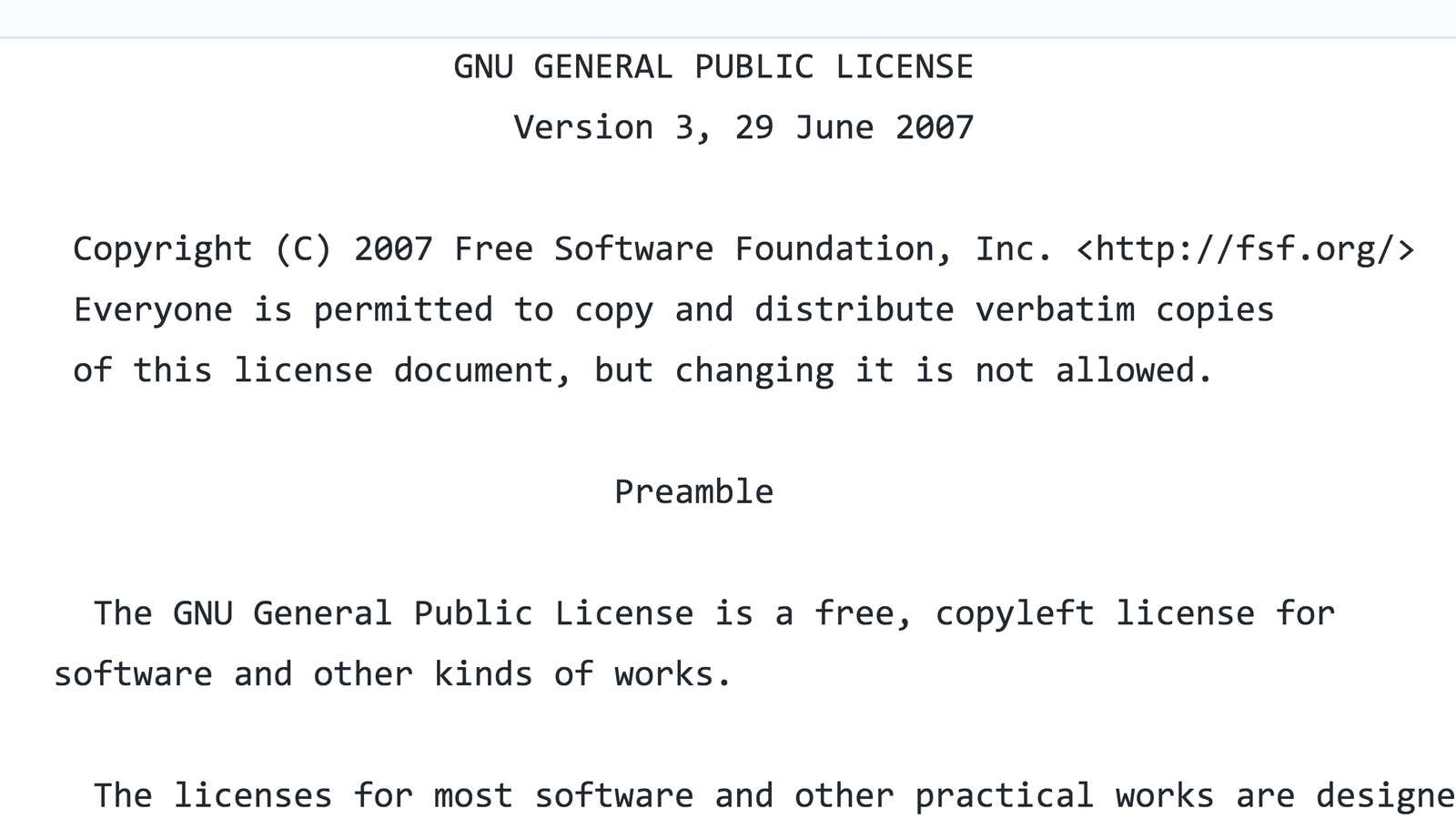When the South Korean developer of a suite of productivity apps called Hancom Office incorporated an open-source PDF interpreter called Ghostscript into its word-processing software, it was supposed to do one of two things.
To use Ghostscript for free, Hancom would have to adhere to its open-source license, the GNU General Public License (GPL). The GNU GPL requires that when you use GPL-licensed software to make some other software, the resulting software also has to be open-sourced with the same license if it’s released to the public. That means Hancom would have to open-source its entire suite of apps.
Alternatively, Hancom could pay a licensing fee to Artifex, the developer of Ghostscript. Artifex allows developers of commercial or otherwise closed-source software to forego the strict open-source terms of the GNU GPL if they’re willing to pay for it.
But after it began using Ghostscript in its software in 2013, Hancom did neither: it did not open-source its software, and it did not pay Artifex a licensing fee.
At the end of 2016, Artifex filed a lawsuit against Hancom in the US District Court for the Northern District of California.
“Upon discovering Hancom’s abuse of the GNU GPL and infringement of Artifex’s valuable copyright in Ghostscript, Artifex demanded that Hancom cease its infringement and remit to Artifex a reasonable royalty for Hancom’s years of unlicensed use of Ghostscript,” the company said in its complaint. “Rebuffed by Hancom, Artifex turns to this Court to enjoin Hancom from further infringement and to seek relief and recovery for Hancom’s abuse of Artifex’s open source license.”
Artifex also said in its complaint that Hancom reported $86.3 million in revenue in 2015.
The enforceability of open source licenses like the GNU GPL has long been an open legal question. The Federal Circuit Court of Appeals held in a 2006 case, Jacobsen v. Katzer, that violations of open source licenses could be treated like copyright claims. But whether they could legally considered breaches of contract had yet to be determined, until the issue came up in Artifex v. Hancom.
That happened when Hancom issued a motion to dismiss the case on the grounds that the company didn’t sign anything, so the license wasn’t a real contract.
“Not so,” said Judge Jacqueline Scott Corley in her order on the motion on April 25. Corley said the GNU GPL “provides that the Ghostscript user agrees to its terms if the user does not obtain a commercial license. Plaintiff alleges that Defendant used Ghostscript, did not obtain a commercial license, and represented publicly that its use of Ghostscript was licensed under the [GNU GPL]. These allegations sufficiently plead the existence of a contract.”
Corley denied the motion, and in doing so, set the precedent that licenses like the GNU GPL can be treated like legal contracts, and developers can legitimately sue when those contracts are breached. It’s an important win for the open-source community. Of course, whether Artifex will actually win the case it’s now allowed to pursue is another question altogether.
